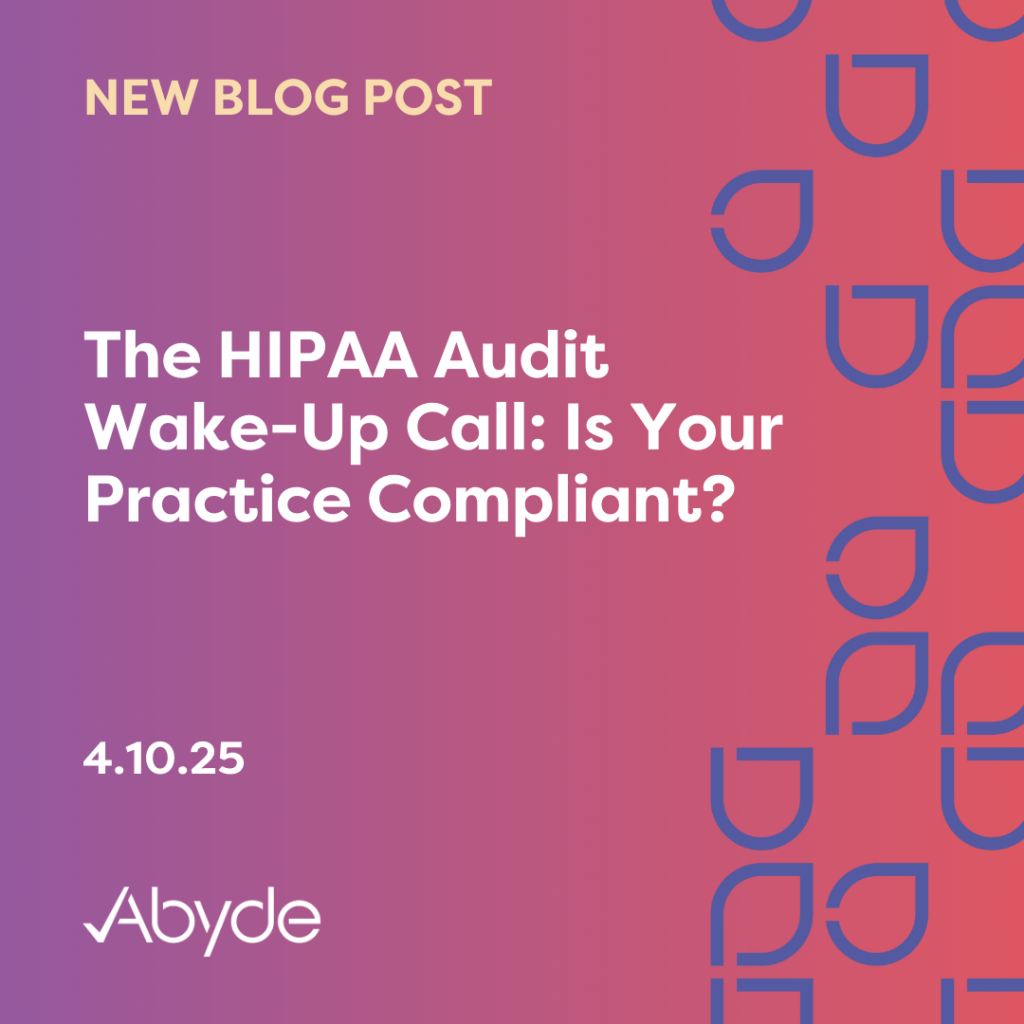April 10, 2025 The HIPAA Audit program is back in business. Since the introduction of the Health Information Technology for Economic and Clinical Health (HITECH) Act, the Office for Civil Rights (OCR) has been able to audit practices, ensuring they follow HIPAA standards. While the revival of the audit program was announced last May, new information was confirmed at the latest HIPAA Summit, with 50 Covered Entities and Business Associates being selected to be audited. This program was last active from 2016-2017, which highlighted that, unfortunately, noncompliance with HIPAA is far too common in regulated entities. In fact, only 14% of Covered Entities, like medical practices, could produce a compliant Security Risk Analysis (SRA). The healthcare industry is entering a new era of HIPAA compliance in the wake of the largest ever healthcare data breach. New HIPAA legislation is being reviewed and the Office of the Inspector General (OIG) is recommending stricter audit processes. With millions in fines already imposed in 2025, proactive preparation is now critical for healthcare providers and their business partners. What is the Audit Program? The audit program was first introduced when the HITECH Act was enacted in 2009. While the majority of the investigations the OCR conducts are reactive, resulting after a patient complaint or a breach, the audit program is random. The OCR will thoroughly review the selected organization’s documentation and current processes as the audit program resumes. A compliant HIPAA program entails much more than training; it also requires comprehensive, continuous protocols to ensure patient data is being protected. The basis of a compliant practice is being able to present an SRA. As stated earlier, previous audit programs spotlighted the shortcomings of regulated entities completing this. The SRA is a thorough assessment of your practice. This includes reviewing the safeguards your practice currently has in place. Technical, physical, and administrative safeguards all play a role in securing Protected Health Information (PHI). This would include a deep dive into the technology your practice uses, the physical protections your practice might have (like alarms), and the administrative policies your practice follows. Completing this analysis will allow your practice to identify vulnerabilities before a breach occurs. Proactive compliance, addressing issues before they affect patients, is key to a successful practice. In addition to providing an SRA, practices must also prove compliance with other pillars of HIPAA compliance, such as the Right of Access (or sending requested medical records to practices in a timely manner), the Breach Notification Rule, the Privacy Rule, and more. After the rise in ransomware attacks in recent years, with a nearly 300% increase in ransomware-related breaches, regulated entities’ cybersecurity practices will likely be scrutinized, ensuring that those audited are aware of their technology responsibilities. What can I do? Your practice must be aware of HIPAA and implement the appropriate safeguards to be prepared for the possibility of an audit. While this can be a daunting task, it is imperative for your practice to follow HIPAA compliance before a situation occurs. Thankfully, smart software can streamline and simplify HIPAA for your practice, providing a roadmap to compliance. With the right solution, your practice can see exactly what the OCR requires, which will be asked for if ever audited. To learn more about becoming audit-ready, schedule an educational consultation with our team of experts.
What is the HITECH Act and How Does it Relate to HIPAA?
January 28, 2021 Trying to understand all of the complicated rules and regulations your practice needs to follow can sometimes feel like keeping up with the Joneses – but HIPAA isn’t the only compliance rulebook your practice needs to follow, and other laws (both new and old) impact your practice operations and your HIPAA compliance program – enter the HITECH Act. Whether it’s your first time visiting our news page (welcome!) or you’re a regular reader (welcome back!) you might’ve seen last week’s article covering the new HIPAA Safe Harbor bill that offers practices reduced HIPAA fines IF they have reasonable security safeguards already in place before a breach. The bill amends the HITECH Act to incorporate this change, but if you aren’t even sure what the HITECH Act really is, let’s take a step back and cover what the Act means for you and where these new changes come into play. The What The ‘Health Information Technology for Economic and Clinical Health’ Act, or HITECH Act (much easier to say), was signed into law way back in 2009 to essentially promote the implementation of health information technology, specifically the use of electronic health records (EHRs), by healthcare providers. Transitioning from paper to electronic records was (and still is) time-consuming and costly, and the HITECH act provided incentives for making the switch – while also ensuring that healthcare organizations along with their business associates remained in line with HIPAA law as they upgraded their systems. The Why So you might be thinking – well doesn’t HIPAA law already promote the secure usage of EHR’s? You’re right (high five!) but the HITECH Act goes one step further and expands the enforcement and strength of HIPAA regulations related to technical requirements within the HIPAA Privacy and Security Rules. Thanks to the HITECH Act, violation tiers were introduced, increasing financial penalties for HIPAA violations and ultimately giving the Office for Civil Rights (OCR) more money in the bank to go after non-compliant covered entities. The HITECH act was also designed to answer questions around how to offer the same HIPAA protections to electronic protected health information (ePHI), not just physical PHI, as practices went digital. This included: Where the HIPAA Safe Harbor Bill Fits In Fast forward to 2021, and all the same needs the HITECH act was introduced to fill still apply. However, the newly signed HIPAA Safe Harbor Bill helps to reinforce the value of these security measures with the new incentives offered and opportunity for reduced fines – and it’s one of the few pieces of new legislation you should actually feel GOOD about! So whether it’s HIPAA, HITECH, or the brand new Safe Harbor Bill – understanding and complying with each and every one of their requirements is essential to protecting your patients. Still not quite sure about what’s required? Don’t sweat it! Schedule a free consult with one of our HIPAA experts today to ensure you’re up to speed.

